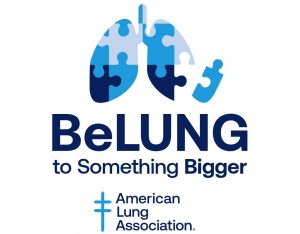Iowans between 25 and 35 needed for lung study at UI
February 20th, 2024 by Ric Hanson
(Radio Iowa) – Hundreds of Iowa millennials are being asked to volunteer for a new American Lung Association study which will try to determine how lung disease develops, how to catch it earlier, and how to prevent it. Dr. Ravi Kalhan, the study’s principal investigator, says they need Iowans between the ages of 25 and 35. “We’re looking for people who are healthy, young adults, because we think that’s the age at which people achieve peak lung health — that’s as good as it gets for someone who’s healthy and free of lung disease,” Kalhan says. “And then our goal is to really follow them forward and see why some people develop respiratory problems as time goes on and others don’t.”
This is to be the first-ever large-scale lung health study, with about 4,000 people being monitored nationwide at 35 medical centers, including at the University of Iowa Hospitals and Clinics. Initially, Kalhan says those who are picked in Iowa will only need to make one trip to Iowa City. “What we’re asking people to do is make a single visit to get a bunch of tests done,” he says. “Those tests include a breathing test, a lung function test where someone blows hard and fast into a machine and we measure their lung capacity, a CT scan, a CAT scan of their lungs to get a really detailed picture of their lungs, some blood tests, and then also answering a bunch of questionnaires.”
 Those questions would cover things like where they’ve lived, what they do for a living, and a family medical history. People would be compensated for their time, but Kalhan notes the big benefit is in a detailed assessment of one’s respiratory health, plus, they get to be a part of something much larger. After that one day of testing at the UI Hospitals, the rest of the contact would be remote, with questionnaires once every six to 12 months.
Those questions would cover things like where they’ve lived, what they do for a living, and a family medical history. People would be compensated for their time, but Kalhan notes the big benefit is in a detailed assessment of one’s respiratory health, plus, they get to be a part of something much larger. After that one day of testing at the UI Hospitals, the rest of the contact would be remote, with questionnaires once every six to 12 months.
“And then our hope is, at some point in the future, maybe in three to five years, we’ll bring these people back to one of our centers for another in-person examination,” Kalhan says, “and keep in touch with them to find out how their life goes and whether they develop respiratory problems or not, and to better understand why some people develop lung disease and others don’t.”
To learn more or sign up, visit: Lung.org/LungStudy





